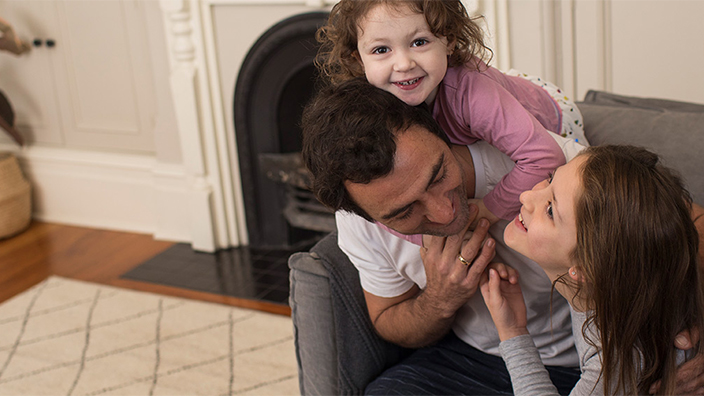 Thinking of buying a new home?
Thinking of buying a new home?
Unless you’re a first-home buyer, you’re probably going to be faced with a dilemma: do you buy a new home first and remain in your current property, or sell your current one first?
There’s no right or wrong answer to this, but it helps to be aware of the potential pros and cons of each situation before you make your decision.
Pros of buying first
Ready to buy now? Buying a house before selling could be a riskier option, but there are also several benefits and circumstances that may mean it’s a compatible choice for your situation.
-
Circumstances
If you’re moving for a reason such as to be near parents, close to a school or for another pressing circumstance, you could decide to secure your new home first then sell later. Otherwise, it may be a long wait before you find another property that suits you. Alternatively, if you plan to renovate the new house, not selling your old house can allow you to avoid having to rent somewhere until the renovation is finished.
-
Opportunity
If you’ve found your dream home in the perfect location, it might be that you need to make a move fast. If you wait until your house is sold, you could miss out.
-
Accommodation
If you buy before you’ve sold your first property, you’ll have the security of having somewhere to live throughout the process. You’ll also avoid the potential cost of renting while you search for another home.
-
Removals
When you buy first, moving your belongings from one house to the other should be straightforward without the added cost of storage.
Cons of buying first
Buying a new home before you’ve sold your current one could come with a few potential setbacks worth considering before going ahead with a purchase. This will depend on your personal situation and if you’re unsure, get in touch with a lender who can provide information on different ways of managing your loans during this time.
-
Financial circumstances
Buying a new house before selling first means you need to have the deposit readily available, before you have the funds from the sale of the original property. For those that can afford it, it may still place a strain on budgets while you wait for the original property to sell. For those that don’t have the funds available for the purchase may require a bridging loan. A bridging loan covers the costs of purchasing the new property until the money comes through from the sale of your old one.
-
Risk
Buying first also involves some risks. The first of these is that your home may potentially sell for less than you originally anticipated, meaning you could have over budgeted for your new home. Your old home could take longer to sell than you thought, meaning your finances could be stretched during that time. You could also find yourself needing to pay two mortgages if you can’t sell your old home fast enough.
Pros of selling first
Selling your current home first is the alternative option.
-
Less risk
With the proceeds of the sale of your previous property, you know your budget and how you will fund buying your new house. Once you have this figure, you’ll also know exactly how much money you have to deal with in your budget and make an informed decision on your next home.
-
Relaxed selling
Selling your home first will likely mean you’re in less of a hurry to get it sold. That means that you could be in a better position to negotiate and get a price that you’re happy with.
Cons of selling first
While this may be the most risk-averse option, it’s still not always the best option for everyone depending on your personal circumstances, with several factors to consider.
-
Accommodation
If you sell your home but are unable to find a new home you’re happy with in time, you may be forced to move out of your home with nowhere to go. This may mean renting for a short period or moving in with family or friends.
-
Pressure
If you are under pressure to buy within a specific time frame, this could influence your decision-making for your next purchase, which could lead to buyer’s regret. Sellers may also use this to their advantage in negotiations if they know you have already sold your home. Renting for a brief period after the sale can allow a more thorough decision-making process when buying, but comes at a price.
-
Property price increase
Another consideration is that property prices could rise between the sale of your old home and the purchase of your new one, meaning you get less for your money the longer it takes to buy.
While there are pros and cons with both options, everyone’s personal situation is different. The state of the market, your budget, risk appetite and personal circumstances can all have an impact on what is the best choice for you.
This article is intended to provide general information of an educational nature only. It does not have regard to your objectives, financial situation or needs and must not be relied upon as financial product advice. Before you act on this information, you should consider whether it is appropriate for your circumstances. Applications subject to credit approval and fees and charges are payable. Terms and conditions apply and are available on request. Information in this article is current as at the date of publication.




